Post-car accident, bladder control issues like incontinence or frequent urination can arise, causing distress and confusion. This article provides essential insight into the causes, common symptoms, and treatment options available for those facing bladder control issues after car accident, and helps navigate these unexpected challenges.
Key Takeaways
Bladder injuries from car accidents, such as spinal cord damage and peritoneal dome ruptures, can lead to serious bladder dysfunction, including urinary incontinence and frequent urination.
Medical treatment for bladder dysfunction post-accident ranges from non-invasive approaches like pelvic floor muscle training to medications, and in severe cases, surgery may be necessary to repair bladder damage.
Individuals suffering from bladder control issues after a car accident should seek prompt medical attention and may need to consult with a car accident attorney to explore compensation claims for long-term management and recovery.
Unpacking Bladder Dysfunction Post-Car Crash
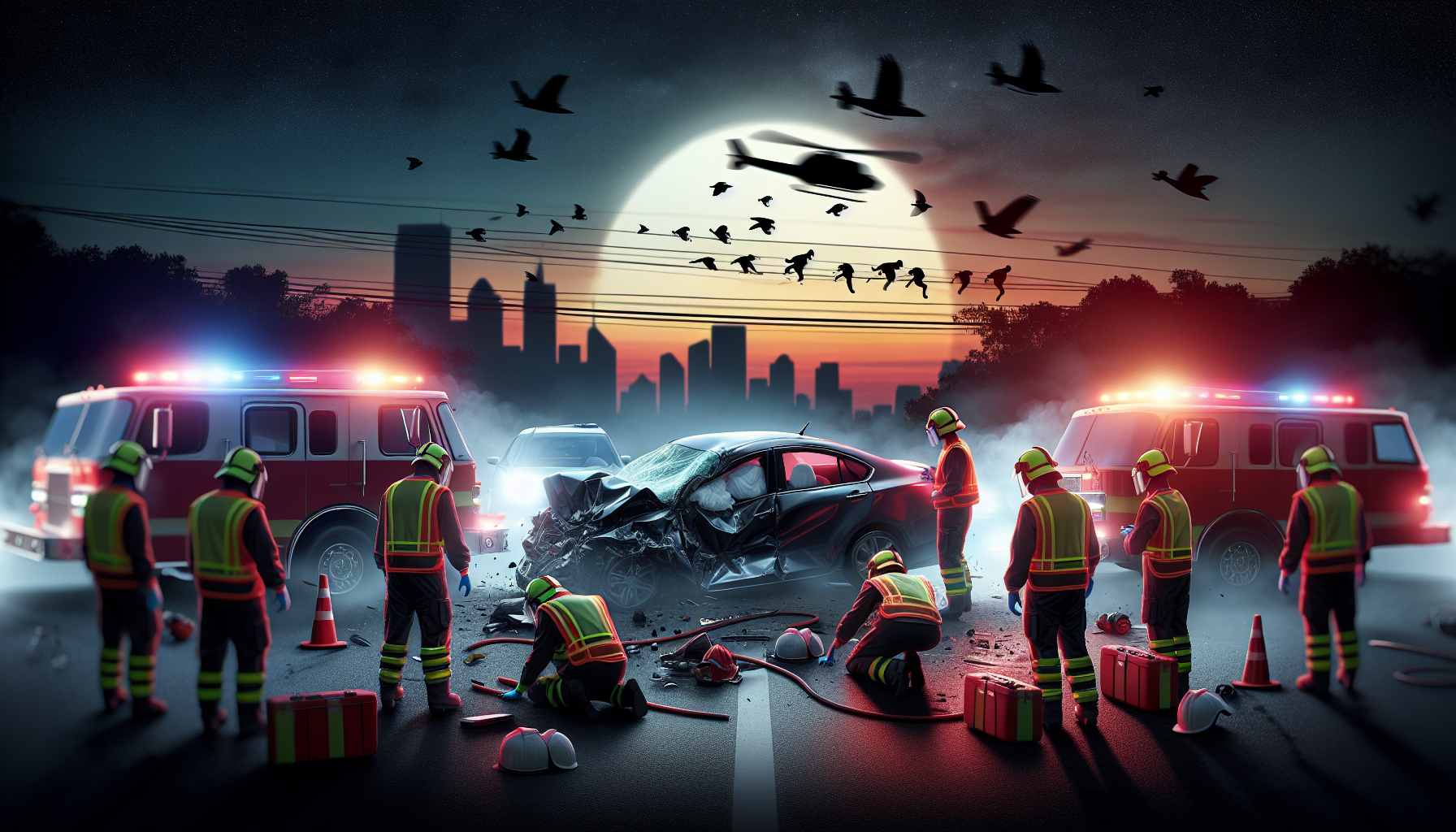
Understandably, bladder control is not the first thing that comes to mind when you think of serious car crashes and accidents. However, the reality is that traumatic events like a car accident cause and crashes can lead to bladder injuries and dysfunction. In fact, spinal cord injuries, a common occurrence in serious car crashes and accidents, can often cause nerve damage leading to urinary incontinence. Moreover, bladder injuries, particularly to the peritoneal dome when the bladder is full, can lead to life-long incontinence.
Symptoms of bladder dysfunction following a car accident can include:
Urinary tract infections
Frequent urination
Inability to completely empty the bladder
Urinary incontinence
These symptoms can significantly impact an individual’s life, making it crucial to understand and address bladder issues post-accident.
Identifying Signs of Bladder Trauma
Identifying bladder trauma early on can significantly impact the course of treatment and recovery. Symptoms indicative of bladder trauma include:
Abdominal pain
Bloody urine
Severe abdominal pain
Difficulty urinating
Notably, bladder rupture from a car accident, characterized by urine leakage into the abdomen, necessitates emergency treatment.
Bladder injuries can have a severe impact on the quality of life and may even result in permanent personal injury. Women, in particular, might initially confuse bladder control issues resulting from a car accident with childbirth-related complications. Therefore, it’s important to keep track of any unusual bladder symptoms and seek medical attention immediately.
Link Between Spinal Cord Injury and Bladder Control
The link between spinal cord injuries and bladder control is critical to understand, especially for those involved in car accidents. The spinal cord plays a pivotal role in bladder control by transmitting information necessary for the voiding process and controlling the bladder and bowel external sphincters. Therefore, any damage to the spinal cord, or blunt force injury to spinal cord influences such as those sustained in car accidents, can impair the nerves responsible for urinary functions, leading to various bladder control issues. Understanding how spinal cord injury influences these functions is essential for proper care and management.
Conditions such as cervical spinal stenosis may cause damage to the sacral spinal cord and brain stem and contribute to the loss of bladder control due to the narrowing of the sacral spinal cord and canal and pressure on nerve roots. Damage to the sacral spinal cord or brainstem can disrupt signals necessary for bladder function, highlighting the urgency for medical diagnosis and treatment to address the resulting incontinence.
The Anatomy of Impact: How Car Accidents Affect the Urinary System
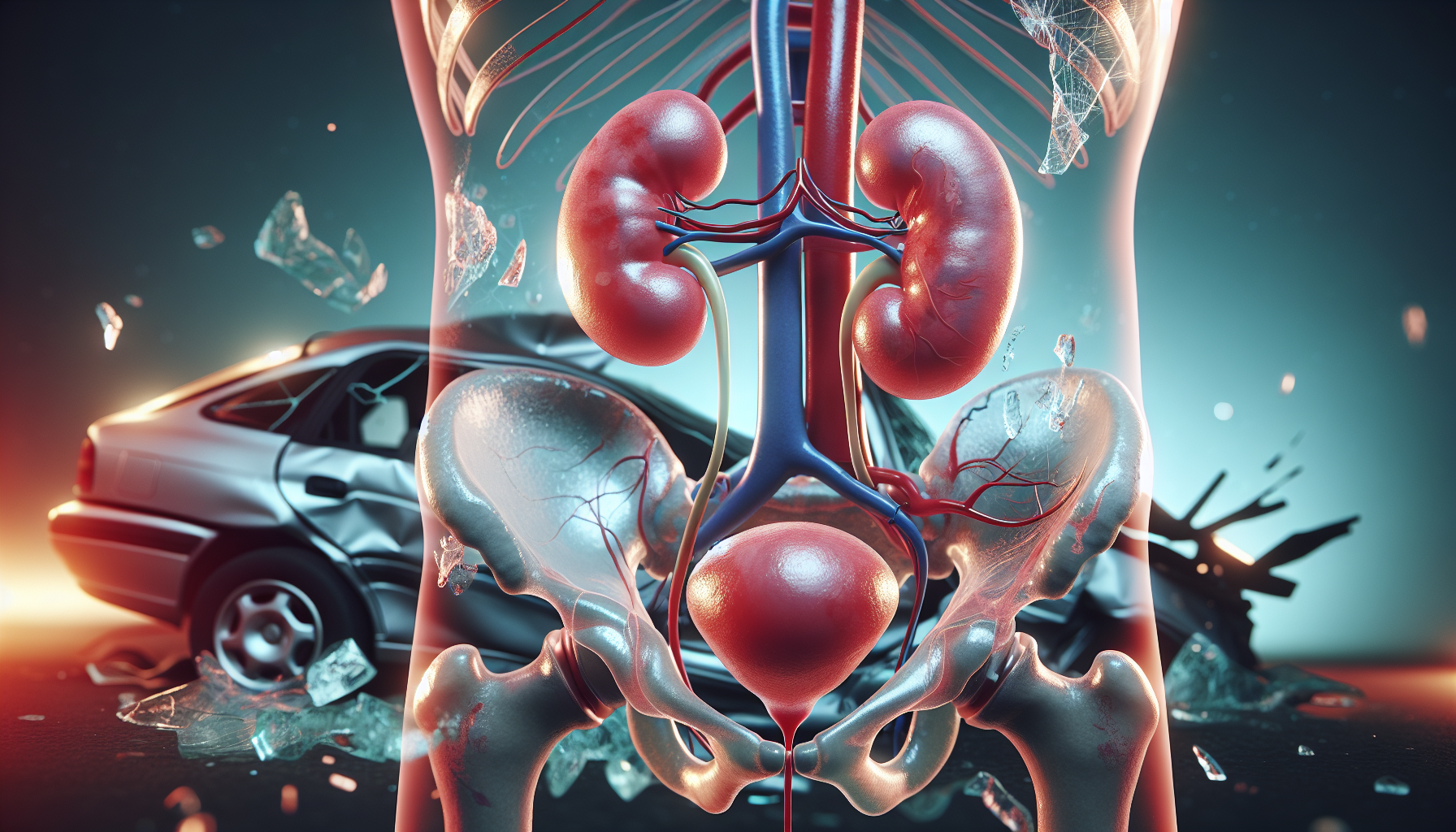
The impact of car accidents on pelvic area and the urinary system is often overlooked, but it’s a crucial aspect to consider. The bladder, normally protected by the anterior bony pelvis, becomes vulnerable in high-energy impacts like car accidents. In fact, at least 85% of bladder ruptures are associated with car crash with pelvic fractures, indicating the vulnerability of pelvic area and the bladder in such situations.
The dome of the bladder, being the most mobile and weakest part, is susceptible to rupture, especially when blood pressure in the bladder is full blood pressure. Bladder contusions and intramural hematomas from blunt trauma typically do not require specific treatment, indicating a degree of resilience provided by the pelvic bones. However, bladder ruptures relative to the peritoneal reflection can be either extraperitoneal or intraperitoneal, with treatment depending on the injury’s location.
The Role of Pelvic Bones in Protecting the Bladder
The role of pelvic bones in protecting the bladder is significant, yet often unappreciated. Despite being a robust shield against injuries, the pelvic bones cannot always protect the bladder from the extreme forces generated during a car accident. The majority of bladder injuries occur in association with pelvic bone fractures, particularly with pubic rami fractures.
Bladder damage mechanisms include laceration by bony fragments or avulsion from severe displacement in the event of pelvic fractures. Understanding these mechanisms is valuable in predicting potential bladder injuries post-accident and thus ensuring prompt and appropriate treatment.
Consequences of Spinal Misalignment on Bladder Function
Spinal misalignment resulting serious damage from a car accident injuries can have a severe pain profound impact on bladder function. It can cause issues such as incontinence and difficulty urinating. Therefore, assessment of the spinal alignment along with joint and muscle evaluation is crucial for understanding how a serious car accident injuries has impacted bladder control.
Moreover, chiropractic care can improve bladder control by correcting spinal misalignments that may interfere with nerve signals to the bladder. This highlights the importance of seeking professional, safe chiropractic adjustments to help in managing your bladder pain and control issues post-accident.
Treatment Pathways for Regaining Bladder Control
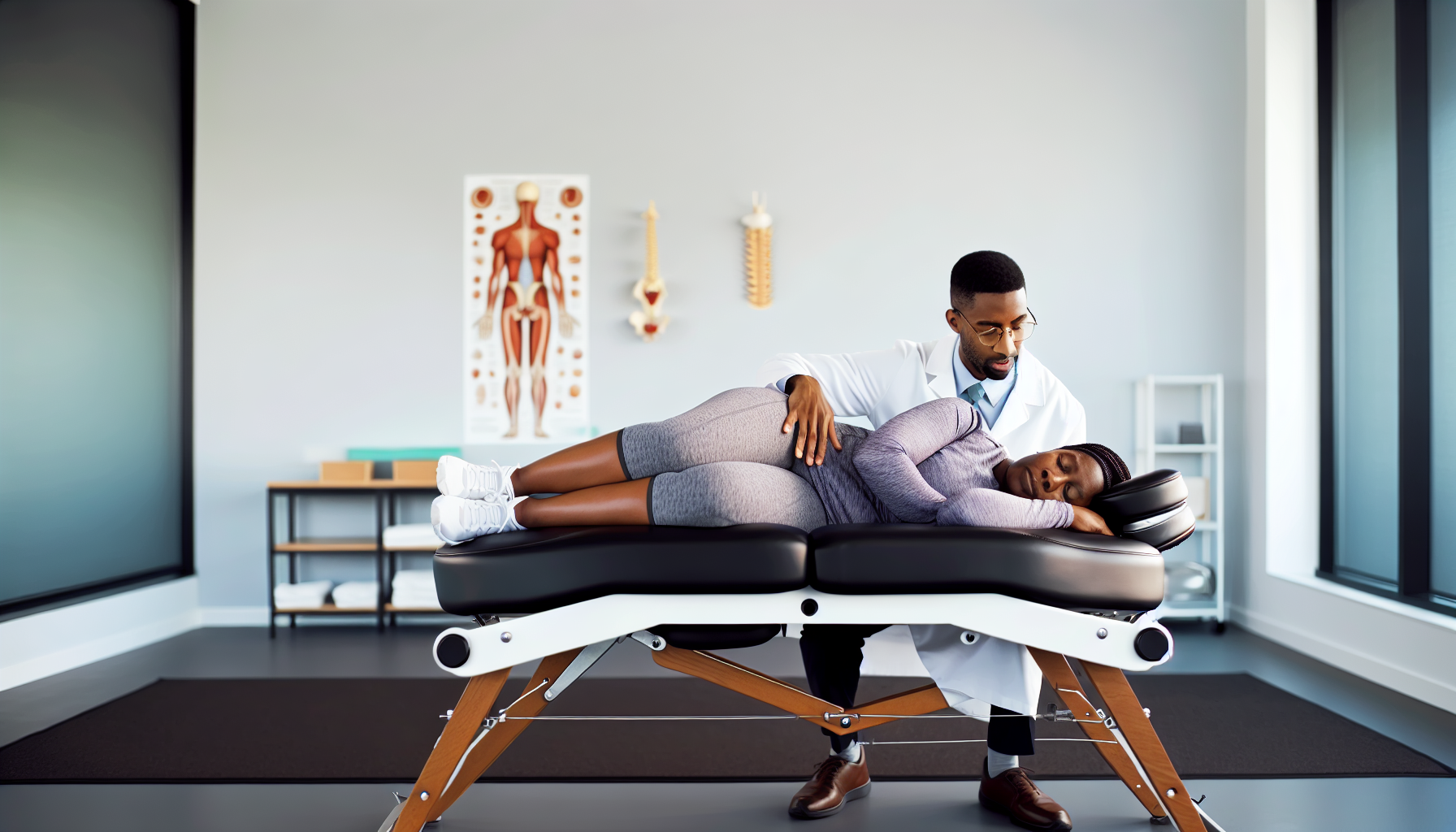
While dealing with bladder dysfunction after a car accident can be overwhelming, it’s important to know that there are various treatment options available, including bowel management therapy. From medications to improve bladder function and manage both bowel movements and movement timing, to pharmacological treatments for both urgency and stress urinary incontinence, individuals have a range of treatment options to to regain bladder control.
Different treatments work for different subtypes of incontinence. Here are some examples:
Anticholinergics reduce bladder spasms and treat urgency urinary incontinence.
Alpha agonists used for stress urinary incontinence increase urethral closure force.
Onabotulinum toxin A (BTX) injections provide a treatment option that straddles the line between pharmacological and procedural interventions.
It’s critical to discuss these options with your healthcare provider to formulate a treatment plan that suits your specific circumstances.
Non-Invasive Approaches to Bladder Recovery
The good news is that there are non-invasive approaches to bladder recovery after car crash. Chiropractic care, for instance, can help restore spinal alignment and relieve symptoms of bladder dysfunction related to spinal misalignment after a car accident. A car accident chiropractor can create a customized treatment plan that includes assessment of spinal misalignments and therapeutic treatment to alleviate any bladder trauma-related symptoms such as incontinence.
Other non-pharmacological treatments for urinary incontinence post-car accident include pelvic floor muscle training, which strengthens the musculature vital for bladder control. Behavioral training aims to extend the periods that an individual can hold urine and works in conjunction with pelvic floor muscle training to improve bladder control. These approaches offer a drug-free pathway to bladder recovery.
When Surgery Is Necessary
While non-invasive approaches and medications can be effective, there are instances when surgery is necessary. For severe bladder injuries resulting serious damage from a penetrating object like a bullet, surgery is often required to repair the damage, with a catheter placed into full bladder to allow healing. Surgical intervention is also indicated in extraperitoneal bladder rupture cases when the catheter fails to adequately drain.
Moreover, reconstructive surgery may be utilized to address and manage bladder control issues that arise as a result of a car accident.
Seeking Professional Help: Medical and Legal Aspects
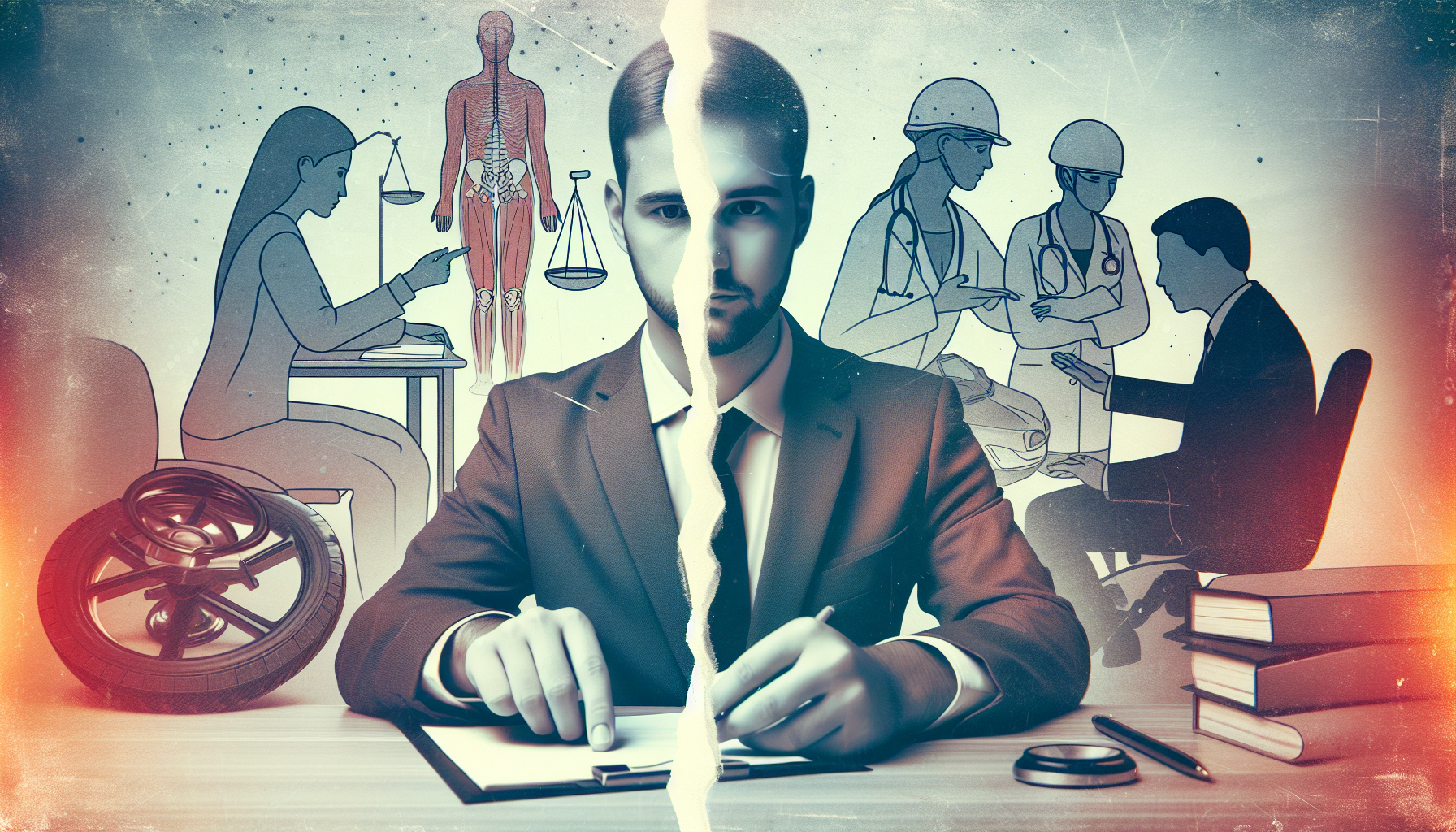
Managing bladder control issues and incontinence after a car accident involves not only medical treatment but also navigating the legal aspects. Loss of bladder control and/or incontinence following a car accident necessitates immediate medical evaluation to minimize long-term damage and to ensure proper treatment. At the same time, those diagnosed with a spinal cord injury leading to incontinence after a car accident should consult with a skilled car accident attorney for a free no-obligation initial consultation.
Contacting a car accident attorney for a free consultation is recommended for individuals who have experienced incontinence after a car accident, to explore potential compensation. It’s crucial to understand that you have rights and potential compensation claims, especially when dealing with long-term implications like bladder control issues.
The Importance of Prompt Medical Attention
The importance of prompt medical attention cannot be overstated. Immediate medical attention after a serious car accident is critical, as comprehensive diagnosis and treatment are essential, especially for bladder-related symptoms that may not be immediately apparent.
Bladder injuries, including a bladder injury, after a car accident can be severe, potentially causing bladder pain, along with:
intense pain
blood in the urine
difficulty urinating
frequent urination
urinary incontinence
These symptoms require prompt medical attention to prevent long-term damage.
Consulting with a urologist who is experienced in treating patients after car accidents is critical for effective treatment and recovery of neurogenic bladder and other related issues. Delaying medical diagnosis and treatment can lead to the development of long-term serious neurogenic bladder problems and complications, making it essential to seek care soon after the incident.
Consulting with a Car Accident Attorney
In addition to medical help, consulting with a car accident attorney is crucial to identify and pursue compensation claims resulting from a car accident cause or injuries. A car accident attorney is knowledgeable about how to calculate compensation for medical expenses and non-economic damages such as pain and suffering, which is essential for individuals dealing with long-term conditions like bladder control problems due to a car accident cause.
Many car accident attorneys offer a free initial consultation, which can help victims understand their legal rights and the potential worth of their claim without any upfront financial commitment. This free consultation can provide a much-needed sense of direction and support during a challenging time.
Lifestyle Adjustments and Coping Strategies

Living with bladder control issues can be challenging, but certain lifestyle adjustments and coping strategies can help manage these issues more effectively. For example, to alleviate Overactive Bladder (OAB) symptoms following a car accident, it can be helpful to avoid bladder irritants like alcoholic and carbonated drinks, caffeine, citrus fruits, spicy foods, and products with artificial sweeteners or high fructose corn syrup, and instead opt for a diet rich in lean proteins, fibers, and certain fruits.
In addition, a range of absorbent incontinence products tailored to different needs, such as liners, pads, and disposable or reusable underwear, can help manage leakage and maintain comfort. Regularly changing wet pads or underwear and utilizing moisture barrier skincare products are crucial for preventing skin rashes and infections for those using protective garments due to incontinence challenges. Other options, such as condom catheters for men, portable toilets, and vaginal or penile devices, offer discrete and alternative ways to control urinary incontinence for individuals with diverse requirements and conditions.
Navigating Insurance and Healthcare After a Car Accident
Navigating insurance and healthcare after a car accident can be complicated, but it’s a crucial step in ensuring you receive the care and compensation you deserve. It’s important to provide both personal injury protection (PIP) and health insurance information to healthcare providers to enable proper billing and ensure coverage. Moreover, insurance companies may deny compensation or reject long-term care for serious car accident injuries or-related bladder injuries, in which case filing a legal claim can help victims seek compensation for medical expenses, lost wages, and other damages caused by the car accident.
Also, it’s crucial to disclose any prior injuries to healthcare providers for an accurate assessment of new injuries related to the car accident. And remember, it’s best to avoid discussing legal matters such as lawsuits or claims with healthcare providers. Instead, focus on the medical history and treatment needed for recovery.

Summary
In conclusion, bladder control issues following a car accident, though often overlooked, can have a profound impact on an individual’s life. Understanding the potential bladder dysfunction, recognizing the signs, and seeking prompt medical and legal help are crucial steps towards recovery. While the journey may be challenging, with the right treatment pathways, lifestyle adjustments, and coping strategies, managing bladder control issues can become a manageable part of life.
Frequently Asked Questions
Why did I pee when I got in a car accident?
It's possible that you peed during the car accident due to a bladder injury, which can cause incontinence and difficulty emptying the bladder. Bladder injuries can occur due to a spinal cord injury or misalignment during a car accident.
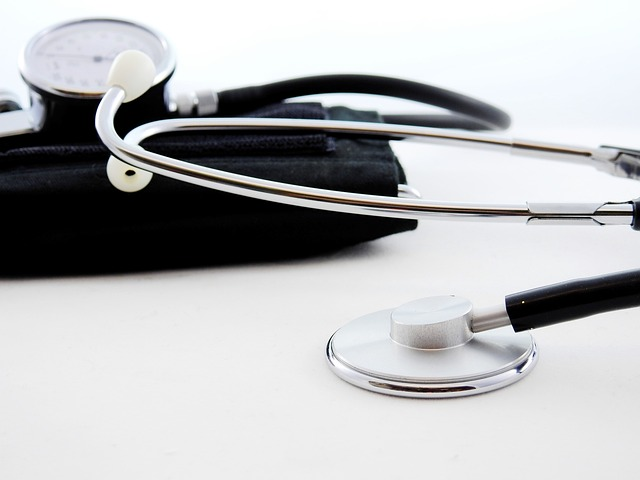
Can seatbelt injury cause bladder issues?
Yes, during a car crash, wearing a seat belt around the belly with a full bladder can cause the force of the car crash to focus on the bladder, potentially leading to injury. It can also be hurt by being pierced from the outside by seat belt.
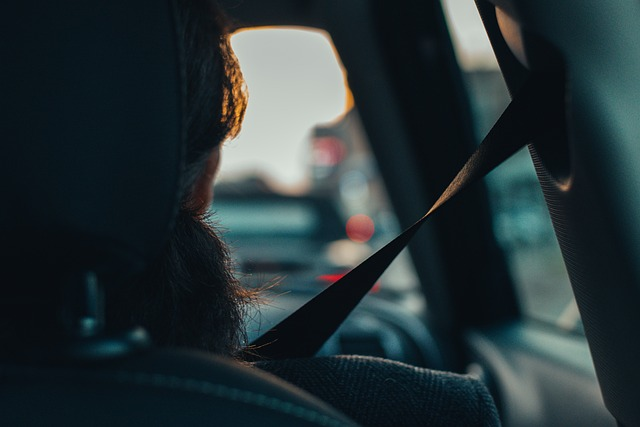
How can a spinal cord injury from a car accident lead to bladder control issues?
Spinal and spinal cord injuries and spinal injuries from car accidents can impair the nerves leg muscles responsible for urinary functions, leading to bladder control issues like incontinence.
How do pelvic bones protect the bladder?
Pelvic bones offer protection to the bladder from external forces, reducing the risk of bladder injury. This helps to safeguard the bladder from potential harm.
What are the non-invasive approaches to bladder recovery after a car accident?
You can consider non-invasive approaches such as chiropractic care, pelvic floor muscle training, and behavioral training to aid in bladder recovery after a car accident. These methods can help promote healing without the need for invasive procedures.

